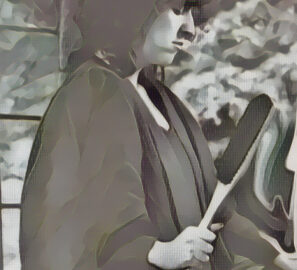(gap: 2s) Many years have now passed since I found myself, in the tranquil embrace of a small town, engaged for a year as an assistant secretary within the school office. The corridors were alive with the laughter and gentle mischief of children, and the faint aroma of chalk lingered in the air. Among my various responsibilities, one in particular bore a certain solemnity: I was to serve as a witness during the administration of corporal punishment. This was a matter of utmost seriousness, requiring the presence of both a gentleman and a lady whenever a pupil was to be disciplined by either the principal or the vice-principal.
(short pause) The school, in its wisdom, endeavoured to ensure fairness and propriety in all matters. Thus, discipline was always administered at the conclusion of physical education, when the children wore their standard gymnasium uniforms—simple, unembellished, and identical for all. In this manner, no child’s attire could offer undue protection or provoke comment, and the rules of discipline were applied with impartiality.
(pause) On a typical day, perhaps three pupils would be summoned for correction. Yet, I recall one remarkable afternoon when the line of anxious children seemed unending, each awaiting their turn with a mixture of apprehension and resignation. The customary standard was six strokes, delivered with measured care, and parents were always informed of their child’s misdeed. More often than not, this notification resulted in a second reckoning at home, where the parental hand or implement awaited.
(short pause) The children awaiting their fate were unmistakable. Seated in the administration office, attired in their gymnasium uniforms, they fidgeted and squirmed, their faces a study in anxiety. Some bit their lips, others gazed fixedly at the floor, and a few exchanged nervous glances with their fellow transgressors. The uniforms, so plain and revealing, betrayed every tremor and shiver, every anxious movement.
(pause) The wait was, by design, a lengthy one—fifteen minutes or more, during which anticipation grew and nerves became frayed. When at last a name was called, the pupil would rise, pale and silent, and enter the office of the principal or vice-principal. The witnesses, myself among them, would already be present, seated with an air of quiet authority.
(short pause) The moment of reckoning was always tense, but it was the act itself—the administration of discipline—that left the most lasting impression on all present. The child, often blinking back tears, would be reminded of the reason for their punishment. Then, with trembling hands, they would bend over the desk, grasping the far edge as instructed. The room would fall silent, save for the gentle ticking of the clock and the soft, nervous breathing of those assembled. (pause) In those moments, time seemed to slow. The child’s knuckles whitened as they gripped the desk, their shoulders hunched in anticipation. I could observe the rise and fall of their backs with each anxious breath, the tension in their bodies almost tangible. The slipper, a black plimsoll with worn rubber soles—identical to those worn during physical education—was raised with deliberate care, and for a heartbeat, everyone in the room seemed to hold their breath.
(pause) The first stroke invariably produced a sharp gasp, and the child would stiffen, the sting of the slipper registering with unmistakable clarity. The sound—a crisp, echoing smack—would reverberate through the office, followed by a moment of stunned silence. I recall one boy, known for his high spirits, who endeavoured valiantly to maintain his composure, only to let out a cry that echoed down the corridor. The slipper always struck low and firmly, and even the most courageous would flinch. (pause) The emotional weight in the room was considerable; I could sense the collective empathy of the witnesses, the silent hope that the ordeal would soon be over. The child’s face would contort, sometimes in pain, sometimes in shame, and tears would well up, threatening to spill over.
(short pause) By the third stroke, the resolve of both boys and girls would falter. Tears flowed freely, and sobs filled the air. The slipper left its mark not only upon the body but upon the spirit, and the humiliation of being punished so publicly was often as painful as the physical discomfort. Curiously, the girls often endured the ordeal with greater initial fortitude, their faces set in determined lines, but once the punishment concluded, they would dissolve into floods of tears, their composure shattered. The boys, on the other hand, tended to react more openly during the strokes, their cries unguarded, but would attempt to compose themselves before leaving, shoulders squared and faces set in a mask of stoicism. (pause) I remember the way some children would try to stifle their sobs, biting their lips or burying their faces in their arms, eager to regain a sense of dignity.
(pause) After the final stroke, the child was permitted a few moments to recover. The sound of the slipper—a sharp, resounding smack—would linger in the air, as would the cries and pleas of the punished. I remember one girl, her pigtails trembling, who pleaded for mercy between sobs, but the rules were clear and the punishment always completed in full. (pause) The emotional aftermath was as vivid as the physical one: cheeks flushed with embarrassment, eyes red and swollen, and a silence that spoke volumes about the ordeal just endured. Sometimes, a child would look up at the witnesses, searching for a hint of sympathy or understanding, and I would offer a small, reassuring nod, though I knew it could do little to ease their pain.
(short pause) On occasion, a parent would elect to administer the strokes themselves. On such days, the atmosphere in the office was especially sombre. The arrival of a stern-faced mother or father signalled a grave fate for the unfortunate child, and the strokes delivered by a parent were often more numerous and more severe. The emotional tension in the room would rise, the child’s fear almost tangible, and the witnesses would sit in heavy silence, aware that the punishment was about to become even more personal and intense.
(pause) Some parents, in their zeal, would dispense one stroke for each year of the child’s age, or follow the slipper with the strap, cane, or even a humiliating over-the-knee spanking with a hairbrush or wooden spoon. I recall a particularly strict father who, after the official punishment, insisted on a private session in the cloakroom, the echoes of which could be heard throughout the building. The emotional scars of such moments often lingered long after the physical pain had faded, and the children would return to class subdued, their spirits dampened by the ordeal.
(short pause) The aftermath was always visible. Those who had received strokes walked with a measured, careful gait, wincing as they lowered themselves onto the hard plastic seats of the classroom. Some would stifle sobs, while others sat in silent misery, their discomfort plain for all to see. The camaraderie of the playground was tinged with sympathy, and even the most spirited boys offered a respectful distance to the recently punished. The emotional residue of the discipline lingered, shaping the way the children interacted with one another, and with the adults who enforced the rules.
(pause) The following day, the effects remained. Pupils moved gingerly, and the memory of the previous day’s ordeal was etched upon their faces. It was not uncommon for a child to confess, in a whisper, that the punishment at home had been far more severe than that administered at school. The emotional toll was evident in their subdued voices and cautious movements, a silent testament to the power of discipline and the vulnerability of childhood.
(short pause) All this may sound rather severe to modern sensibilities, but in those days, the policy of slippering was regarded as a necessary measure. It maintained order and discipline, and, in its own way, fostered a sense of security among both pupils and teachers. The boundaries were clear, the consequences certain, and the lessons—though sometimes painful—were never forgotten. (pause) In the quiet moments after the day’s end, as the sun slanted through the windows and the schoolyard emptied, I often reflected on the curious mixture of fear, respect, and camaraderie that such discipline engendered. It was, in its way, a Sunday lesson all its own.
(long pause) Now, as I look back across the years, I realize that those days shaped not only the children, but all of us who bore witness. The echoes of those lessons—of consequence, of empathy, of the struggle between authority and compassion—remain with me still. (short pause) The world has changed, and so have our ways, but the memories of that small town, the church bells on Sunday, and the quiet strength found in moments of adversity, linger in my heart.


























